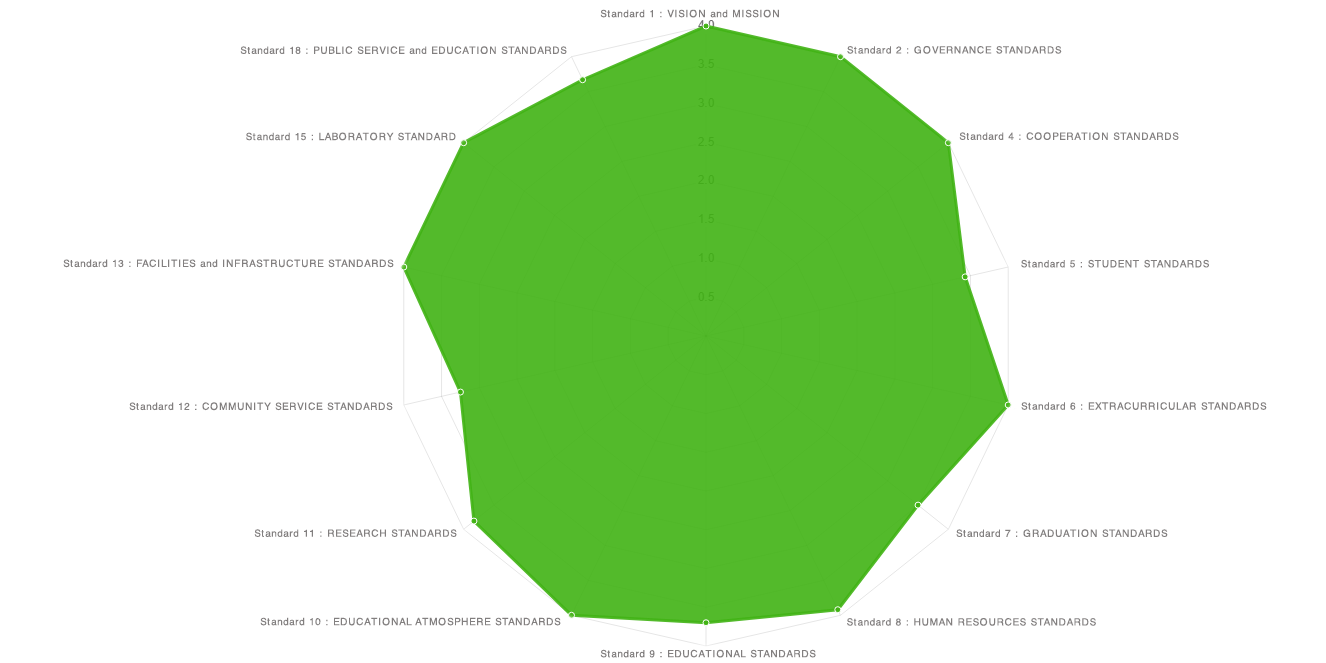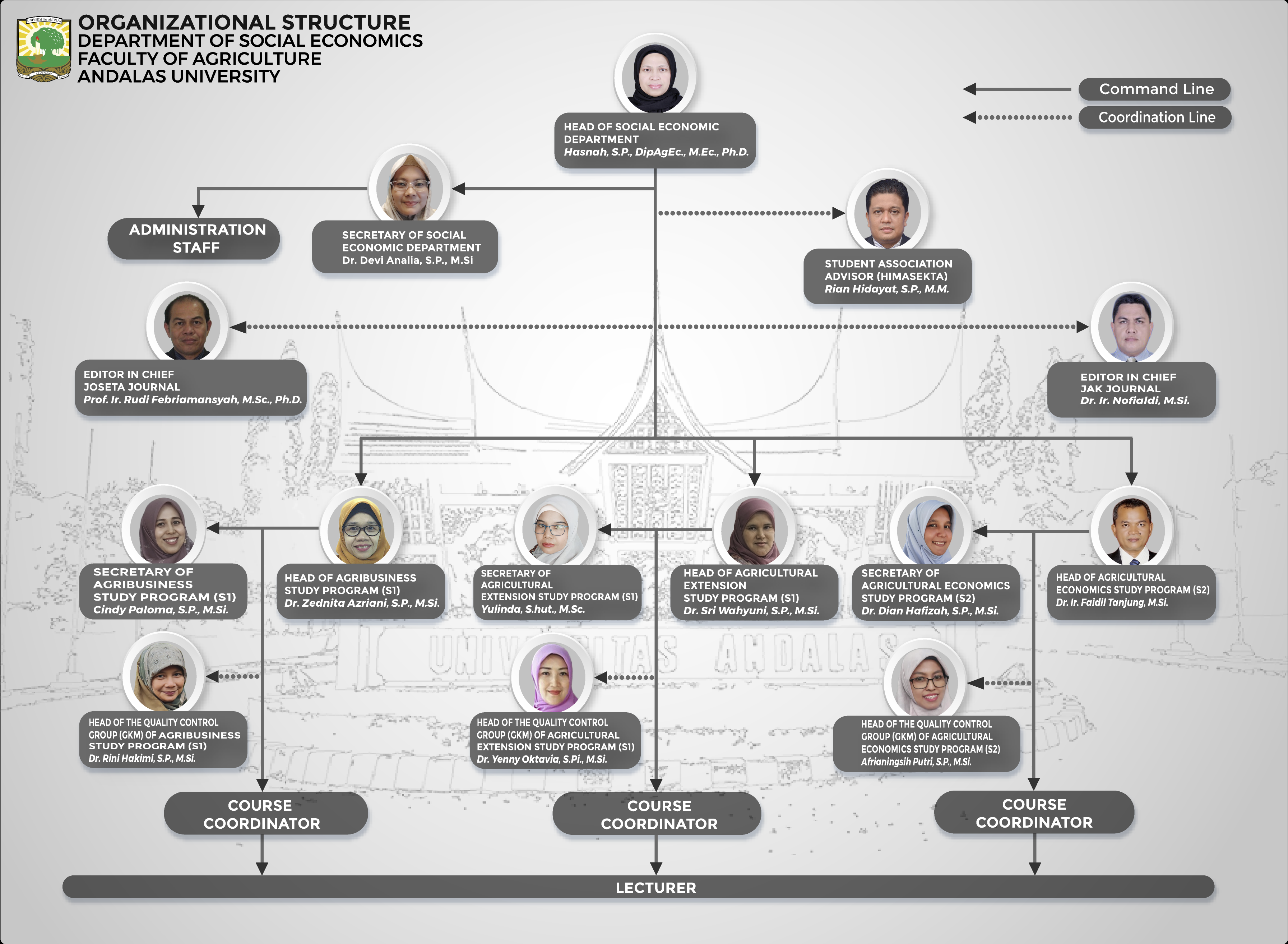
The Academic Guide for the Undergraduate Program of the Faculty of Agriculture, Andalas University, contains information about the Faculty of Agriculture, Andalas University, starting from the history of the faculty, vision and mission, goals, organizational structure and faculty leadership, departments and study programs, academic regulations, curriculum and supporting facilities and infrastructure in Andalas University Faculty of Agriculture. This guide was prepared with the aim of making it easier for students, especially new students of the Agribusiness Study Program, Department of Social Economics, Faculty of Agriculture, Andalas University, to get to know more about the Faculty where they are studying and at the same time become a reference for all academics within the Faculty of Agriculture, Andalas University in carrying out learning programs.
With this guide, students are expected to be able to recognize and take part in the Merdeka Belajar Kampus Merdeka (MBKM) program, because this guide also includes courses that can be taken by students across study programs within the Faculty of Agriculture. Apart from the guidelines, of course other regulations that apply to the Faculty of Agriculture, Andalas University need to be a reference in the process of academic activities at the Faculty of Agriculture, Andalas University.
Click on the following link to download the PDF of the Faculty of Agriculture Academic Guide : DOWNLOAD

Andalas University students who have completed their studies are required to have a Surat Keterangan Bebas Perpustakaan (SKBP). SKBP is proof that the student concerned has completed all of his administration at the Unand Library. The following are some of the requirements that must be met in order to obtain a completed SKBP:
| 1. | Return all borrowed collections (if any) |
| 2. | Pay fines (if any) |
| 3. | Submit a donation book |
| 4. | Bring hardcopy of Final Assignment (D3)/Undergraduate Thesis (S1)/Thesis (S2)/Dissertation (S3) when verifying SKBP |
| 5. | Upload softcopy of scientific work in the form of Final Project (D3)/Undergraduate Thesis (S1)/Thesis (S2)/Dissertation (S3) |
All collections and fines are submitted to the circulation service area on the 1st floor of the Library. Donated books are submitted to the Processing and Collection Development section of the 1st floor of the Library.
Hardcopy of Final Assignment (D3)/Undergraduate Thesis (S1)/Thesis (S2)/Dissertation (S3) Scientific Work is brought when verifying to check its suitability with the uploaded file.
Softcopy of Scientific Work uploaded to e-Thesis web: http://scholar.unand.ac.id. SKBP blanks can be obtained after uploading the Final Project (D3)/Undergraduate Thesis (S1)/Thesis (S2)/Dissertation (S3).
For Procedures for Uploading Thesis and Instructions for Downloading the free library form, download the following PDF Upload Guide for the Final Project: : DOWNLOAD.

Internal Quality Audit is a systematic, independent and documented process to obtain audit evidence and evaluate it objectively to determine the extent to which audit criteria have been met. Internal Quality Audit can also be interpreted as a systematic, independent and documented testing process to ensure that the implementation of activities in Higher Education is in accordance with procedures and the results are in accordance with standards to achieve the goals of the institution.
Internal Quality Audit is not an assessment but rather synchronizes the conformity between the implementation and planning of an activity/program. Internal Quality Audit uses risk based audit, which is an internal audit method to provide assurance that risks at an institution have been managed in accordance with the risk limits (risk appetite) set by the institution. This aims to ensure that the risk management activities that have been agreed upon by institutional management have been carried out effectively and efficiently.
The following are the results of the 2022 Agribusiness Study Program Internal Quality Audit :


DEPARTMENT OF SOCIAL ECONOMICS
| • Head of the Social Economic Departement | : | Hasnah, S.P., DipAgEc., M.Ec., Ph.D. |
| • Secretary of the Social Economic Departement | : | Dr. Devi Analia, S.P., M.Si. |
| • Head of Agribusiness Study Program (S1) | : | Dr. Zednita Azriani, S.P., M.Si. |
| • Secretary of Agribusiness Study Program (S1) | : | Cindy Paloma, S.P., M.Si. |
| • Head of Agricultural Extension Study Program (S1) | : | Dr. Sri Wahyuni, S.P., M.Si. |
| • Secretary of Agricultural Extension Study Program (S1) | : | Yulinda, S.Hut., M.Sc. |
| • Head of Agricultural Economics Study Program (S2) | : | Dr. Ir. Faidil Tanjung, M.Si. |
| • Secretary of Agricultural Economics Study Program (S2) | : | Dr. Dian Hafizah, S.P., M.Si. |
| • Head of GKM of Agribusiness Study Program (S1) | : | Dr. Rini Hakimi, S.P., M.Si |
| • Head of GKM of Extension Study Program (S1) | : | Dr. Yenny Oktavia, S.Pi., M.Si. |
| • Head of GKM of Agricultural Economics Study Program (S2) | : | Afrianingsih Putri, S.P., M.Si. |
| • Student Association Advisor (HIMASEKTA) | : | Rian Hidayat, S.P., M.M. |
| • Editor In Chief JOSETA Journal | : | Prof. Ir. Rudi Febriamansyah, M.Sc., Ph.d. |
| • Editor In Chief JAK Journal | : | Dr. Ir. Nofialdi, M.Si. |
